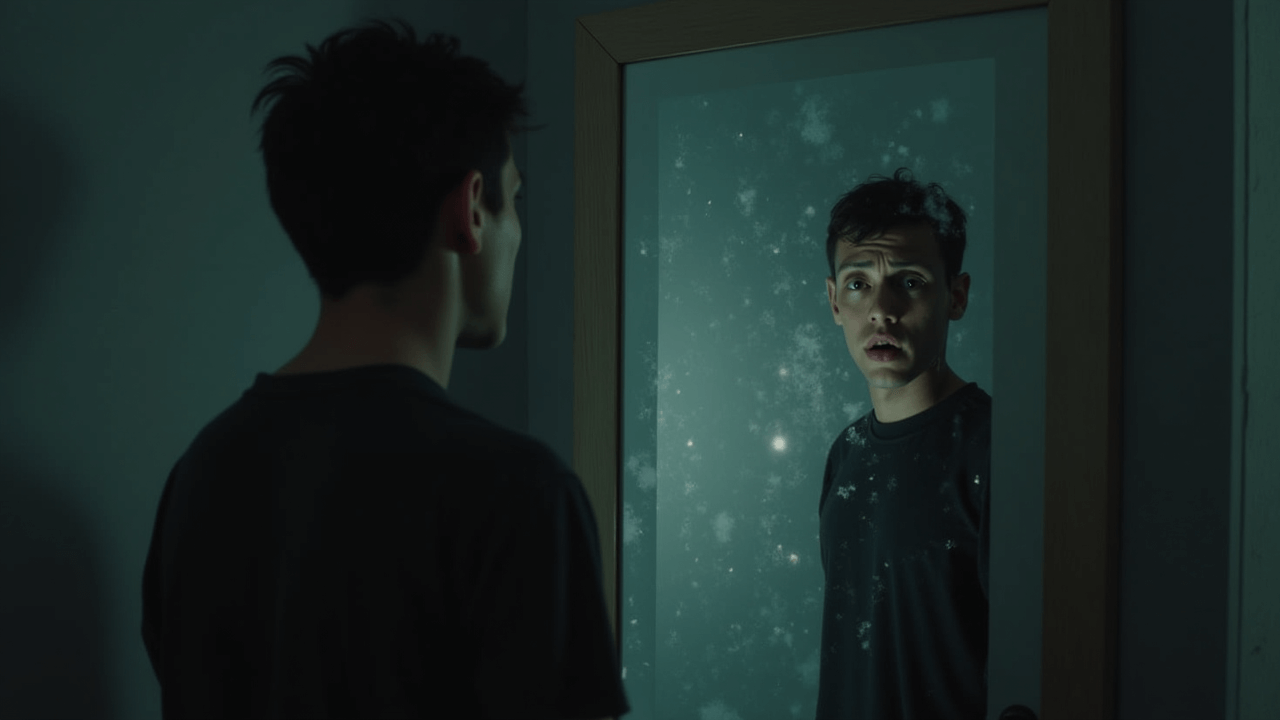What Is Psychosis: Can You Be Aware of What’s Real?
Ever wondered what it’s really like to experience psychosis? It’s a question that leads us into a world of vivid dreams, hallucinations, and blurred lines between reality and perception. Psychosis is often simplified as a state where someone can’t tell what’s real. But does that mean they’re totally unaware of reality? The truth is, it’s a lot more complex than that. Let’s dive into this, breaking it down based on firsthand experiences.
Understanding Psychosis: Hallucinations vs. Delusions
One of the first distinctions people shared is between hallucinations and delusions. These two terms often get lumped together, but they represent very different experiences. Hallucinations are about the senses—seeing, hearing, or feeling things that aren’t there. Delusions, on the other hand, are false beliefs. Even if there’s clear evidence to the contrary, people experiencing delusions hold onto these beliefs firmly.
So What’s It Like to Hallucinate?
Some users described their hallucinations as almost dreamlike, but with a twist—they knew something was off. Imagine being stuck in a vivid dream while fully aware that you’re awake. One person even said it felt like their brain was replaying old memories, making everything seem hyper-realistic. This experience challenges the common misconception that psychosis always involves complete detachment from reality.
Awareness During Psychosis: Can You Know It’s Not Real?
This is where things get really interesting. Some people with psychosis reported moments of clarity during their hallucinations. They knew something wasn’t right, but the hallucinations continued anyway. This idea of awareness throws a wrench in traditional definitions of psychosis, where the assumption is often that people are fully immersed in their altered reality.
In fact, one person described feeling like they were in a waking nightmare—they were aware that what they were seeing wasn’t real, but it didn’t stop the experience. This insight raises an important question: Can you truly be experiencing psychosis if you know it’s not real?
Dissociation vs. Psychosis: What’s the Difference?
Another term that came up often in the discussion was dissociation. People with both psychosis and dissociative disorders shared that their experiences sometimes overlapped. Dissociation is more about feeling disconnected from your thoughts, emotions, or sense of self. Unlike psychosis, where sensory overload plays a big role, dissociation is about stepping outside of yourself—almost like watching your own life from the sidelines.
This difference between feeling disconnected from reality (psychosis) and feeling disconnected from yourself (dissociation) is crucial. While both can make someone feel like they aren’t fully present, the nature of the detachment is different.
The Sensory Overload Hypothesis
Some people suggested that psychosis might not always be about total disconnection from reality. Instead, it could be about sensory overload. When your brain is overwhelmed by too much information—sounds, sights, emotions—it might short circuit. A psychiatric nurse in the discussion put it this way: during psychosis, the brain can get so overloaded with sensory input that it can’t process things properly. This leads to those intense, dreamlike hallucinations.
If you think about it, our brains are constantly filtering out unnecessary information. But during psychosis, those filters might break down, leaving the person overwhelmed by unprocessed information. It’s like trying to make sense of a chaotic wave of sights and sounds all at once.
Does Awareness Negate Psychosis?
One of the most heated debates in the discussion was whether being aware during psychosis negates the experience. Some people argued that true psychosis means fully believing in your hallucinations and delusions. But others said they were still hallucinating, even though they knew something wasn’t right. It’s a gray area that challenges old-school definitions of psychosis.
This debate highlights how our understanding of mental health is constantly evolving. Personal experiences play a huge role in shifting these definitions. In the past, psychosis was seen as a black-and-white condition—either you were lost in a different reality, or you weren’t. But now, there’s more recognition of the complexity and nuance in these experiences.
The Role of Lived Experiences in Understanding Psychosis
One of the biggest takeaways from the discussion is how important it is to listen to people who have lived through psychosis. Clinical definitions can only take us so far. The firsthand accounts from people in this thread reveal layers of complexity that challenge traditional definitions.
These personal stories remind us that understanding psychosis—or any mental health condition—isn’t about fitting experiences into neat boxes. It’s about asking, “What’s it like for you?” and using that to guide support and care. After all, it’s about helping real people, not just ticking off symptoms on a form.
FAQ
What is the difference between hallucinations and delusions?
Hallucinations involve sensing things that aren’t there, like seeing or hearing things. Delusions are strong beliefs that aren’t based on reality, even if there’s evidence to the contrary.
Can you be aware that you’re experiencing psychosis?
Yes, some people report moments of awareness during psychosis. They may realize that their hallucinations aren’t real, but they still experience them vividly.
What is dissociation, and how does it differ from psychosis?
Dissociation is a feeling of being disconnected from your thoughts, emotions, or sense of self. In contrast, psychosis often involves sensory overload and hallucinations, where reality itself seems altered.
Does sensory overload cause psychosis?
Some theories suggest that psychosis can result from sensory overload. When the brain is overwhelmed by too much information, it may struggle to process everything, leading to hallucinations.
Can someone with psychosis have moments of clarity?
Yes, some people with psychosis report moments of clarity where they realize something is wrong, even while experiencing hallucinations or delusions.
Your Hosts

Alex & Maria
Join Alex Thompson and Maria Davis as they navigate the fascinating world of knowledge. With their combined expertise and passion for learning, they simplify the complex and make every episode a journey worth taking.

